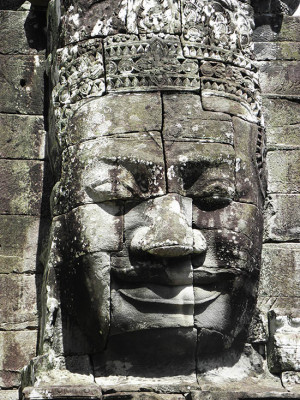Current Section: model

Lesson Shirk (Polytheism & Idolatry)
The Meaning of Shirk
Shirk is to associate a partner with Allah the Exalted in His lordship, divinity, names, and attributes.
Examples of Shirk
The Severity and Danger of Shirk
Shirk contradicts belief in the divinity of Allah alone. If belief in the divinity of Allah alone and singling out Allah with worship is the most important and greatest of obligations, then shirk is the greatest sin in the sight of Allah the Exalted. It is the only sin that Allah does not forgive except through repentance, as Allah stated: {Indeed, Allah does not forgive associating partners with Him, but He forgives what is less than that for whom He wills} (An-Nisa:48). And when the Messenger of Allah ﷺ was asked: Which sin is the most severe in the sight of Allah? He ﷺ replied: “To make with Allah an equal, when He created you” (Bukhari 4207, Muslim 86).
Shirk ruins and nullifies acts of worship, as the Allah the Glorified said: {But if they had associated partners with Allah, then worthless for them would be whatever they were doing} (Al-An’am:88).
Shirk condemns the person committing it to an eternity in the Hell Fire, as the Exalted said: {Indeed, the one who associates others with Allah - Allah has forbidden him Paradise, and his refuge is the Fire. And there are not for the wrongdoers any helpers.} (Al-Ma’idah: 72).
Types of Shirk
It is when the servant directs one of the acts of worship to someone other than Allah. From every word or act of worship that Allah loves, if it is directed to other than Allah, then it is shirk (polytheism) and kufr (disbelief). An example of major shirk is when a person asks other than Allah and prays to him to cure him of his illness or increase his sustenance. Similarly, if a person relied on someone other than Allah, prayed to other than Allah, or slaughtered in the name of someone other than Allah, he engaged in major shirk.

Directing these supplications, actions, and the like to other than Allah is shirk and kufr. Healing and sustenance are among the characteristics of lordship, and reliance on Allah, praying to Him, and slaughtering in His name are from the unicity of divinity.
2. Minor shirk
It is every form of speech or action that serves a means to greater shirk, and a way to fall into it.
Examples of Minor Shirk
Is asking people and requesting from them considered shirk?
Islam came to liberate the human mind from superstition and falsehood and to liberate humans from submission to anyone other than Allah. It is not permissible to ask the dead or inanimate and to submit to them and humble oneself before them, and it is from superstition and shirk. As for asking the present living person what he is capable of, such as his assistance with something, saving someone from drowning, or asking him to supplicate Allah for him, then this is permissible.
Asking something from an inanimate object or dead person is considered shirk that goes against Islam and faith. Because the dead and the inanimate are not able to hear the request or respond to it. Additionally supplication is an act of worship, and directing it to other than Allah is shirk, and the shirk of the Arabs at the advent of the Prophet ﷺ was the supplication of the inanimate and the dead.



